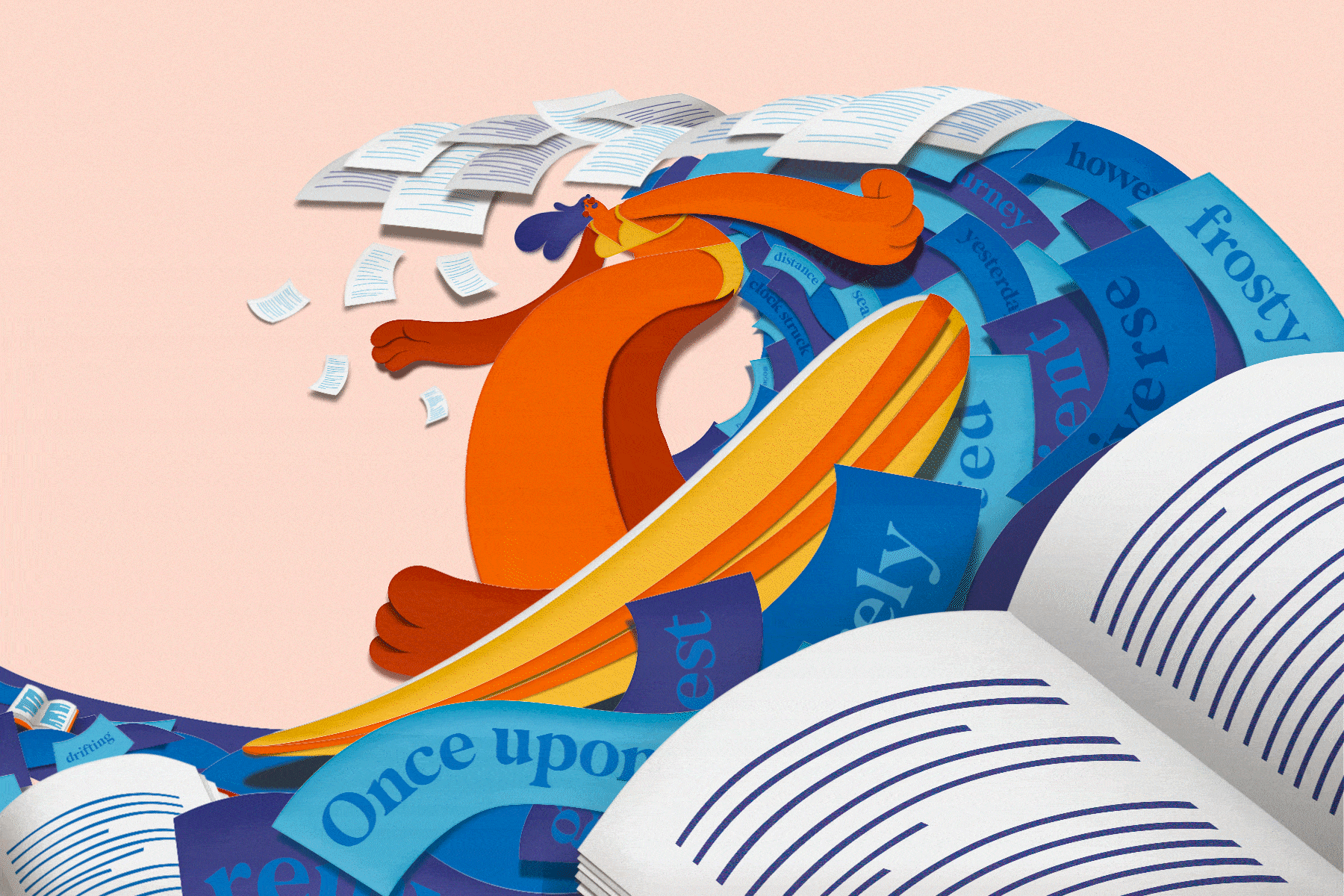
Right, okay – don’t get upset. Somebody has to say it: it’s okay to skim-read a book.
Yes, you read that right. Forgive me. Forgive yourself, too, because I'll bet you’ve done it as well. At some point in your life, somebody has asked you to read a book, an essay, an interview, a user’s manual; you skimmed it for the important bit, the most interesting bit, the most meaningful bit, and you applied it to the relevant task. Maybe you just needed to quickly double-check a user’s guide to see how to change the time on your television; or maybe – just as forgivably – you skipped down the essay you were recommended to find a fact or idea that might start a conversation with, or make you feel connected to, the person who recommend it.
If you’re feeling guilty, take comfort: you’re part of a rich historical tradition of handwringing about what constitutes “real” reading.
In Index, A History of the, John Duncan writes that the fear that “nobody will read properly any more” has lingered since as far back as the 17th century, when ivory tower language purists, fearful that indexes would “take the place of lengthier engagements with books, that we [would] forget the old ways of close reading, [and] become deplorably, incurably inattentive,” coined “index-raker” as a pejorative new term for writers with flowery prose.
These days, the perception of what “counts” as reading is broadening
One hundred years later, a new anxiety arose surrounding how to read: specifically, an 18th-century moral panic that novels were eroding readers’ abilities to distinguish fact from fiction. It would last well into the 19th century; the downfall of Madame Bovary’s title character, who “made her hands dirty with books from old lending libraries”, is precipitated by the whimsical daydreams novels were meant to engender.
The panic about what and how we should read remained alive and well through the 20th century too, as new attitudes about reading – now seen as time well-spent, and crucial for the development of children’s minds – led to worries that, suddenly, we weren’t reading enough: television (“Does TV Kill?”), then video games (“Video games are blitzing the world!”), and now smart phones (“Have smartphones destroyed a generation?”), are and were rotting our brains, making us “stupid”.
As reading – an older and therefore more trustworthy technology – became a worthy pursuit again, strong opinions about the “correct” way to do it, tinged by crusty highbrow/lowbrow distinctions about genre, as well as new technological fears (“Is listening to a book ‘cheating’?”), have crept back in.
These days, the perception of what “counts” as reading is broadening. A few years ago, when we put together an article about how to be a better non-fiction reader, we asked an editor from one of Penguin’s bigger imprints for her tips, and she surprised us with her answer: “You can skim non-fiction because you don’t have to take in the details the same way you do with fiction – you’re not going to get a spoiler, or ruin the ending. So don’t be afraid to just read the bits that make you excited.”
A secret skimmer herself? Possibly. In any case, she was on the avant-garde of shifting attitudes towards reading. On TikTok, where a younger generation of readers is re-shaping the way we think about books, the last few years have seen a seismic shift in what constitutes “real” readers and reading. The hashtag #allreadingisvalid, which advocates for audiobooks as “real” reading, has a quarter of a million views, while the notion that “all readers are valid”, “real readers”, or “the same”, regardless of whether they read YA or classics, has become increasingly pervasive in the past six months.
At the time of writing, #readwhatyouwant – a hashtag pushing against snobbishness around genre fiction, YA, comics, audiobooks, and other forms of literary elitism, especially in a post-pandemic world that increasingly values escapism – has 4.2 million views.
What about fiction? Well, that's up to you. But I wonder: did you “not really watch” a film if you got up to refill your water glass, or “not really see” the match if the doorbell rang just when your club scored? Whether it’s for joy or information; absorbed as audio, graphic novel, or prose; YA, crime, or Tolstoy, the verdict feels, increasingly, in: reading is reading. We won’t tell you how to do it, and if you choose to flick past a few pages, it’s up to you.
And if you’re here, at the end of this article, just having skimmed it? Don’t worry, you haven’t missed much. Oh, and – thanks for reading :)
Image at top: Harriet Noble for Penguin
